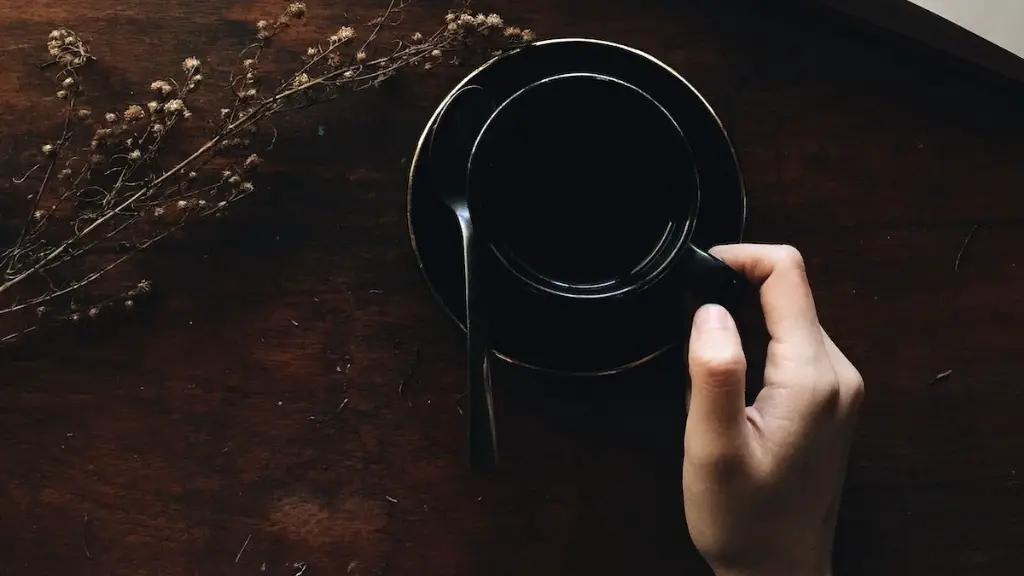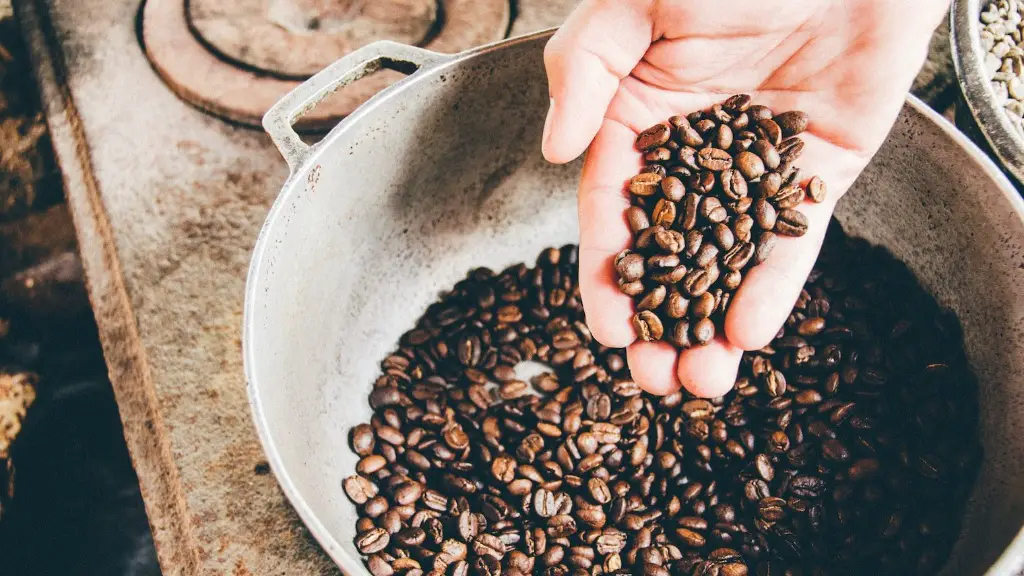Coffee is a popular beverage that many people drink to help them stay alert and energized throughout the day. However, drinking too much coffee can have some adverse effects on your body. Knowing when to stop drinking coffee can be the key to avoiding these ill effects.
If you drink coffee regularly, it is important to know how much is too much. Consuming more than four cups of coffee per day may cause insomnia, anxiety, and headaches. Drinking coffee late in the day can also disrupt your sleep patterns and make it harder to fall asleep at night. Caffeine has a half-life of around 5 hours, so drinking coffee late in the day can still affect you when it’s time for bed.
It is also important to pay attention to how you feel after drinking coffee. If you experience any of the symptoms mentioned above, it may be wise to cut back on your caffeine intake or switch to decaffeinated or herbal alternatives. Additionally, if you are pregnant or breastfeeding, talk with your healthcare provider about the recommended amount of caffeine for you.
Advantages of Quitting Coffee
Coffee is a popular beverage that many people rely on to get an energy boost and to stay awake during the day. However, too much coffee can have some adverse effects on your health and well-being. Quitting coffee can have some great benefits, including improved sleep, better digestion, and increased mental clarity.
Quitting coffee can help improve your sleep quality. Too much caffeine can interfere with your ability to fall asleep or stay asleep throughout the night. By cutting out coffee, you will be able to establish a regular sleep schedule and get the restful sleep that you need for good health.
Another advantage of quitting coffee is improved digestion. Consuming too much caffeine can cause stomach cramps, nausea, diarrhea, and other digestive issues. Quitting coffee can help reduce these symptoms and improve your overall digestive health.
Finally, quitting coffee can lead to improved mental clarity. Caffeine is known for making people feel jittery and anxious, which can make it difficult to concentrate or focus on tasks at hand. By reducing your caffeine intake, you will be able to think more clearly and make decisions more easily without feeling overwhelmed or stressed out.
Overall, there are many advantages to quitting coffee if it has become a habit in your life. Not only will you get better sleep and improved digestion but also increased mental clarity which will help you achieve both short-term goals as well as long-term goals!
Short-term Side Effects of Quitting Coffee
Quitting coffee can have a range of short-term side effects, such as headaches, fatigue and irritability. These symptoms can last for up to two weeks, but are usually mild and manageable. Caffeine withdrawal can also cause difficulty concentrating, increased heart rate and increased body temperature. Additionally, some people feel depressed or anxious after quitting coffee.
It’s important to remember that the effects of quitting coffee vary from person to person. Some people may experience few or no side effects at all. It’s best to slowly reduce your caffeine intake over time in order to minimize any potential side effects. Stopping abruptly can lead to more severe symptoms and make it harder for your body to adjust.
When deciding when to stop drinking coffee, it’s important to consider how much caffeine you consume on a daily basis. For most people, it’s best to gradually reduce their caffeine intake over several weeks or months. This allows your body time to adjust and helps minimize any potential side effects. Additionally, if you’re experiencing any severe or long-lasting symptoms after quitting coffee, it’s best to consult your doctor for advice.
Long-term Benefits of Cutting Out Caffeine
Cutting out caffeine can bring a number of positive benefits in the long-term. The first and most obvious benefit is improved sleep. Caffeine is a stimulant, and drinking it late in the day can make it more difficult to fall asleep at night. Reducing or eliminating caffeine intake can help people fall asleep faster and sleep more deeply.
In addition, reducing or eliminating caffeine consumption can also help reduce stress levels. Caffeine stimulates the body’s production of adrenaline, cortisol, and other hormones associated with stress. By cutting out caffeine, people may notice they feel less anxious and better able to cope with stressful situations.
Finally, reducing or eliminating caffeine consumption can have positive impacts on overall health. Studies have shown that consumption of high levels of caffeine can increase blood pressure and cholesterol levels. By reducing or eliminating caffeine from one’s diet, these potential health risks can be minimized.
In order to maximize the long-term benefits of cutting out caffeine, it is best to slowly reduce intake over time rather than abruptly stopping all consumption at once. Doing so will help to avoid potential withdrawal symptoms such as headaches and fatigue that may occur when suddenly stopping use of the substance.It is important for individuals to take into account their own personal needs when deciding when to stop drinking coffee.
Tips for Avoiding Caffeine Withdrawal Symptoms
Caffeine is a stimulant found in coffee, tea, chocolate, and energy drinks. For some individuals, caffeine can lead to dependence and subsequent withdrawal symptoms when they stop drinking coffee. To help reduce the risk of experiencing uncomfortable withdrawal symptoms, it is important to gradually reduce caffeine intake over time. This should be done by slowly reducing the amount of coffee consumed each day or by replacing coffee with lower-caffeine beverages like herbal tea or decaf.
It is also important to pay attention to the time of day that you drink your caffeinated beverages. If you are having difficulty cutting back on caffeine, try avoiding it after noon and replacing your afternoon cup of coffee with a decaf option or herbal tea. Additionally, avoid drinking beverages with high levels of caffeine late in the evening, as this can disrupt sleep and make it more difficult to reduce your overall intake.
Finally, stay hydrated throughout the day by drinking plenty of water. Not only will this help keep you alert without relying on caffeine, but it will also help flush out toxins and ease any potential withdrawal symptoms that may arise.
Alternatives to Caffeinated Beverages
Coffee is a popular beverage, but it is important to know when to stop drinking coffee and switch to other alternatives. In general, the safe limit for coffee consumption is three to four cups per day. If you experience any of the following physical symptoms after drinking coffee, it’s time to switch to a different beverage: headaches, jitters, insomnia, increased heart rate or blood pressure.
Fortunately, there are many healthy alternatives available that can provide an energy boost without relying on caffeine. Herbal teas such as ginger, chamomile and peppermint have a calming effect on the body and provide essential vitamins and minerals. Fresh fruit juices are another great option – they are full of natural sugars and vitamins that can help energize you throughout the day.
Water should be your first choice when looking for an alternative beverage. Drinking plenty of water helps to keep your body hydrated and keeps everything functioning properly. You can also add flavor with natural ingredients like slices of citrus fruits or cucumber. For an added energy boost, try adding a splash of 100% juice or sparkling water.
Finally, there are non-caffeinated drinks like milk and kombucha that can provide energy while also supplying important nutrients like calcium and probiotics. Even if you don’t typically drink milk, try adding it into smoothies or using it in recipes. Kombucha is another great choice – it’s full of antioxidants and has numerous health benefits.
Tips for Reducing Caffeine Intake Gradually
If you are looking to reduce your caffeine intake, the best way to do it is gradually. Cutting out caffeine completely all at once can be difficult and may even cause withdrawal symptoms. Start by reducing your daily intake of coffee, tea, and other caffeinated beverages. You can do this by switching to decaffeinated versions, diluting caffeinated drinks with water, or drinking smaller amounts each day. Try replacing one cup of coffee with a cup of herbal tea or a mug of warm milk. If you still need a pick-me-up in the afternoon, reach for an iced tea or sparkling water instead. Also keep in mind that caffeine lurks in other places besides your morning cup of joe. Chocolate and certain energy drinks and supplements are full of caffeine too!
It can also be helpful to set yourself a goal for how much caffeine you plan to reduce each week; this will help keep you on track and motivated to reduce your intake. Finally, don’t forget to drink plenty of water throughout the day; this will help keep you hydrated as well as help flush out any excess caffeine from your body. With these tips and strategies, you’ll be able to reduce your caffeine intake gradually over time!
Wrap Up
To wrap up, it is important to know when to stop drinking coffee. Consuming too much coffee can be detrimental to one’s health and can lead to increased anxiety and insomnia. Caffeine sensitivity should be taken into consideration when deciding how much coffee to drink. People who are sensitive to caffeine may need to limit their consumption or switch to decaf coffee. It is also important to note the time of day one consumes coffee, as drinking too late in the day can disrupt sleep patterns. Overall, it is best for individuals to listen to their bodies and determine what works best for them.





